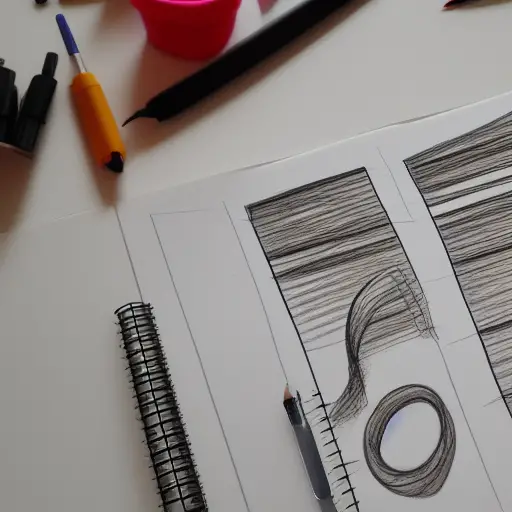If you want to make your life less hectic, you should start organising your life at an early age. Organizing early will lift a heavy weight off your shoulders, and it will also reduce stress and demands. Make a list of one thing you want to organise, and write it down. Write down when you can do it, and what you need to do to get it done.
Creating a system to organise your life
Creating a system to organise the things in your life is an effective way to make your life run more smoothly. The first step in creating a system is deciding which type of organizing system works best for you. Some people use boxes and bins, while others use organizers and calendars. The important thing is to find a system that works for you and stick to it.
A list-making application like Notion is a great tool for keeping track of schedules and goals. It allows you to block out time for important tasks and events. Another great tool is Dropbox, an online file locker that lets you access your files no matter where you are.
Decluttering
The first step to decluttering your life is to identify the reasons you want to simplify. Think about your values, dreams, and goals and work backward from there. Then, list three measurable action steps that will help you achieve each of these goals. When you know why you are decluttering, making decisions will become easier.
Decluttering your life can be done in many different ways. There are many benefits to decluttering your space. It can increase your mental clarity and reduce your stress levels. It can also help you to build a nest egg for emergencies. As a result, you’ll have more money and time to pursue your passions.
One of the easiest ways to declutter is to consider how often you use each item. If you don’t, you may want to donate or sell it. You can even start a donation or garage sale bin. If you don’t use it, you can sell it on sites like Decluttr.
Decluttering your life is also beneficial for your budget. It helps you save money, as you will be able to track what you own better. With less stuff, you won’t be wasting time and energy looking for things. Not only that, you’ll be more organized, since you won’t be left with piles of useless junk.
Creating a to-do list
Creating a to-do list is a useful way to organise your life and keep things on track. It is also useful for memorializing the past and planning for the future. Making a to-do list can make your life easier by helping you keep track of things and reducing mental clutter.
One of the problems with making a to-do list is that it can make your agenda too full. In addition, it can cause you to defer certain tasks. This can lead to unnecessary stress and effort. A good rule of thumb is to write down only a few tasks at a time. This way, you’re more likely to get them done and your overall to-do list will look better.
Next, it’s important to prioritize the tasks on your to-do list. You can rank them from most important to least important. If you have a lot of difficult tasks, divide them into smaller ones. This way, they’ll be easier to complete before the due date. Moreover, if you can complete these tasks ahead of time, you’ll have more confidence to take on larger challenges.
Scheduling your days
Scheduling your days is a great way to manage your time efficiently and get more done. It will help you avoid sidetracks and distractions and will reduce stress. It will also enable you to keep track of your behavior and self-regulate. It will also allow you to keep track of what you need to do and when.
When you are scheduling your day, you should factor in how much time each task will take. It is best to leave about 25% extra time to prepare and wind down. It is also important to plan for travel time between tasks. This will ensure that you don’t run late. However, once you’ve scheduled your days, you need to evaluate them regularly to ensure that they still meet your needs.
You should start by making a weekly planner. You can easily use a form like that shown in Figure 2.5. Copy the form and begin planning your schedule. Make sure to include important activities and classes, as well as your work schedule and your family’s schedule. You should also allocate time for meals, transportation, and fixed activities.
Developing good habits
Developing good habits means taking the time to improve your lifestyle and make healthy choices. One of the best ways to achieve this is by mapping out your routine. Once you have done this, you can start integrating new healthy practices in places where it makes sense. It can also mean swapping out old bad habits with new, healthier ones.
Another way to improve your habits is by journaling. It can help you reflect on the past and improve communication skills. Many good habits include both mistakes and triumphs. A journal is a great way to remember mistakes and learn from them. The process of journalling helps you identify your strengths and weaknesses and helps you improve your communication skills.
Good habits can be difficult to adopt. Often, you’ll fail at them, which can lead you to give up on the habit. However, it’s crucial to maintain a positive attitude and focus on the main goal. You can also ask for help from family members and friends, who can help you build your new habits.
Automating
Automating your life is a great way to free up some time in your life. While planning and scheduling your day can be a hassle, doing so will free up time for spontaneity and creativity. By automating certain tasks, you can reduce your worry and stress. But how do you do it?
First, identify what you value in your life. Set priorities for yourself by determining the things that require the most time and attention. Investing in these areas can save you money and time and help you build stronger connections. There are several tools that allow you to automate your daily routine. For instance, you can set up your calendar so that you’ll know exactly when to get up and take a shower or wash the dishes.
Automating your life can also help you improve your productivity. Automated tasks can help you save time by cutting out repetitive tasks and minimizing distractions. They can also help you be more productive by eliminating boring parts of your day. Automated tasks can also help you manage your money without stress. You don’t have to manually do things like keeping track of your debt or remembering birthdays.
Setting time limits
Setting time limits in your life is an important aspect of time management. These limitations can help you focus better and be more productive. If you can set limits on yourself, you will be less likely to take time away from other activities. This can lead to better productivity and more satisfaction in your life.
If you want to make your life more organised, you should start organizing early. Organising early will free up your mind and reduce pressure. Start by writing down one thing that you’d like to organise. Write down when you’ll be able to do it and what you need to do to make sure you get it done.












